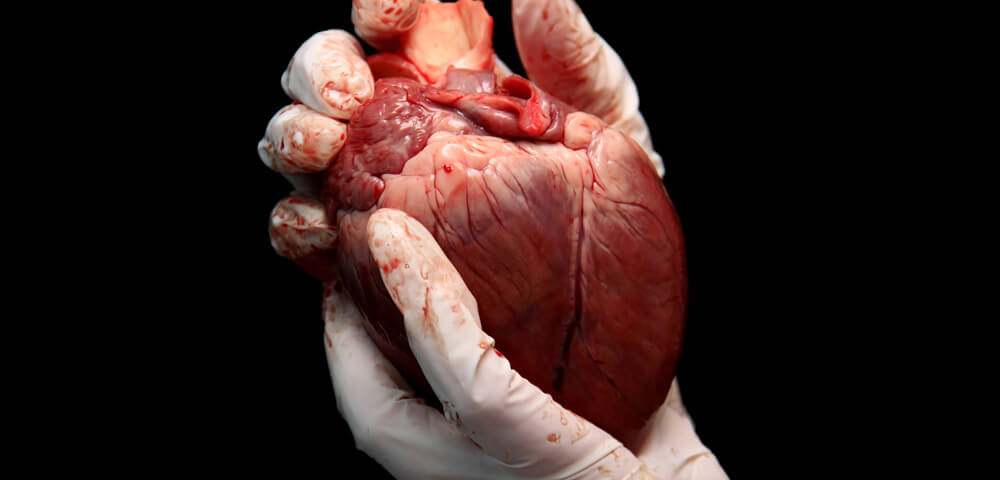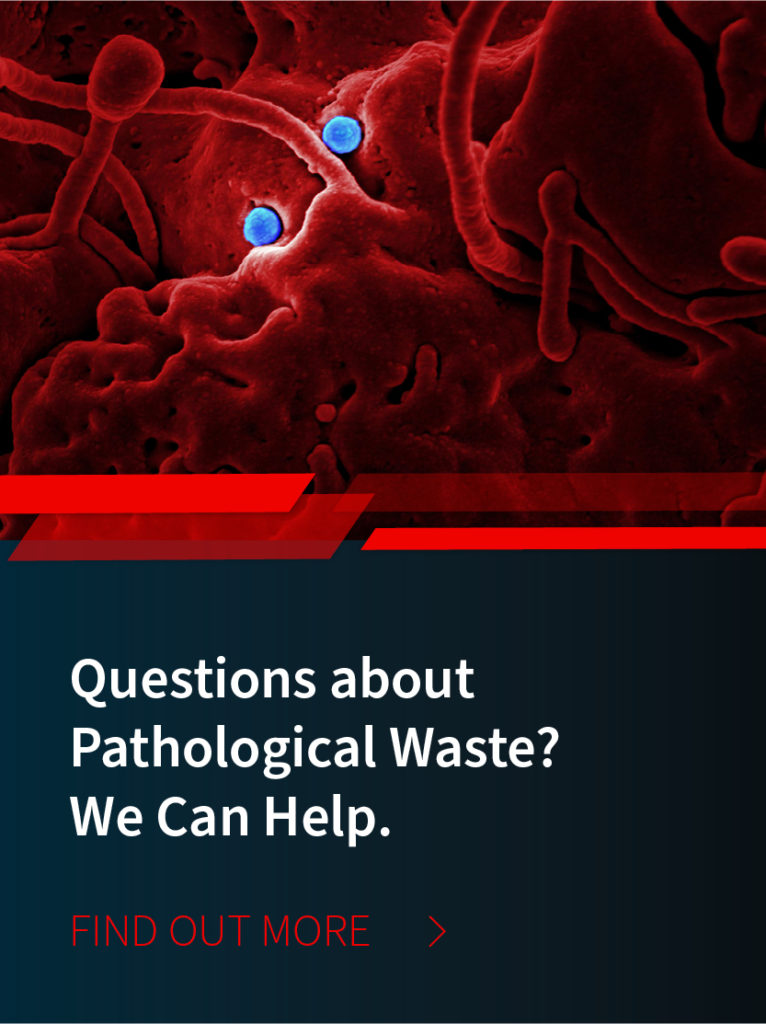
/ IN THIS BLOG
Doctor offices, hospitals, and other medical facilities produce a large amount of varied waste known as waste streams. Each of those different types of waste requires special handling and disposal techniques and processes. One such example is pathological waste. Just like hazardous waste or expired pharmaceutical waste, this too has a specific disposal protocol. If your facility produces this type of waste, you must properly identify, segregate, label, and dispose of it - or you put your facility at risk for penalties, fines and other consequences, such as damage to reputation.
01 / Defining Pathological Waste
-
- Organs
- Tissues
- Surgical specimens
- Bodily fluids removed during surgery or autopsy
Where does pathological waste come from? This waste stream typically originates in hospitals, but to varying degrees, it’s also common in:
-
- Surgery centers
- Cosmetic surgery centers
- Veterinarian clinics
02 / Disposal of Pathological Waste
Technically, this waste falls under the umbrella of regulated medical waste. The state of Georgia provides medical facilities as well as those handling various hazardous wastes with clear guidelines for compliant, safe, and proper disposal of pathological waste.
Rules and regulations for hazardous waste can be found within the Georgia Environmental Protection Division.
Pathological waste generators will also find guidance for compliant waste management processes by reviewing the biomedical waste rules and regulations of the state of Georgia, which can be found here: GRR 391-3-4.
Definitions are important. For example, Georgia defines biomedical waste has “any solid waste which contains pathological waste, biological waste, cultures, and stocks of infectious agents and associated biologicals, contaminated animal carcasses (body parts, their bedding, and other waste from such animals), chemotherapy waste, discarded medical equipment and parts, not including expendable supplies and materials, which have not been contaminated, as further defined in rule 391-3-4-.15.”
Within that category are found two primary and compliant means of waste disposal. Depending on the type of waste, that can involve medical waste autoclaves, or a medical waste incinerator. One of the most common medical waste steams treated through the autoclave process is anything contaminated with blood or other potentially infectious material. Autoclaving is merely a sterilization process. This type of waste is largely known as red bag medical waste.
Anything deemed pathological, however, is not suitable for the autoclave machine. Rather, this type of waste must go through medical incineration - a much hotter treatment that essentially reduces the contents to dust or ash.
Refer to Rule 391-3-4-.15(6) for specific guidelines for treatment of biomedical waste regulations and Rule 391-3-4-.15(7) for rules regarding disposal of such waste. Note that under these rules, no biomedical waste that consists of recognizable human anatomical remains shall be disposed of by landfilling.
An experienced, reputable, and knowledgeable waste management company will be familiar with the laws of Georgia and across other US states in regard to pathological waste management. Don’t guess when it comes to any medical or potentially hazardous waste processes.
03 / Compliant Pathological Waste Disposal Process
To properly and legally handle this waste, a number of steps must be followed:
Identification - One of the most essential steps is simply identifying if what you have is pathological. If you’re in any way unsure, reach out to MCF Environmental Services. We have provided medical and hazardous waste management services for decades and can provide you with valuable and accurate information about your waste stream.
Segregation - If you’ve determined that what you have is pathological, it must go through a different process than the rest of your red bag waste disposal. Therefore, all pathological materials must be segregated from more common red bag waste—bloody bandages, gauze, surgical masks, etc.
Labeling - In addition to segregation, this waste must also be properly labeled to indicate it’s bound for the medical incinerator. Bright orange stickers (typically about two or three) are adhered to each box. These stickers read “Incineration Only.”
Labels alert waste disposal technicians to put those containers or boxes on a specific part of the trailer. This is because all the regulated waste goes to the same treatment facility. Whatever is labeled for the medical waste autoclave goes to that machine, while waste requiring incineration is set aside for that process.
Note that incinerators are not at all treatment facilities. Pathological materials may need to be shipped to other facilities for incineration – another reason why all medical waste should be properly segregated, stored, and labeled prior to transportation off-site.
04 / About Trace Chemotherapy Waste
If your facility also produces trace chemotherapy materials, they are treated like pathological materials and waste. That is, they fall under regulated medical waste, but they need to be incinerated.
Trace chemotherapy encompasses items that once contained chemotherapy drugs (syringes, needles, drug bottles, etc.) but are now empty. Anything that still contains any chemotherapy waste—even a few drops—needs to be treated and disposed of as hazardous waste.
This caveat for trace chemotherapy was put in place to help a medical institution maintain its smaller EPA generator status.
05 / Contacting a Medical Waste Management Company
Because laws and regulations vary somewhat from state to state, it’s always a good idea to reach out to expertise from a medical waste management company. MCF Environmental Services has over 30 years of experience keeping up with ever-changing regulations regarding compliant medical and hazardous waste disposal.
For more information about pathological waste or general waste management tips, contact a representative of MCF Environmental Services and explore how our Atlanta-based team can support you with your healthcare waste management needs. Connect with us for a direct quote below, or alternatively call us on 866 315 8116.
Robert Losurdo
President, COO








